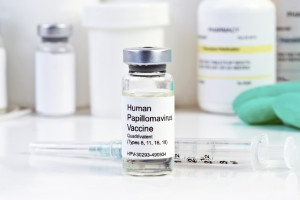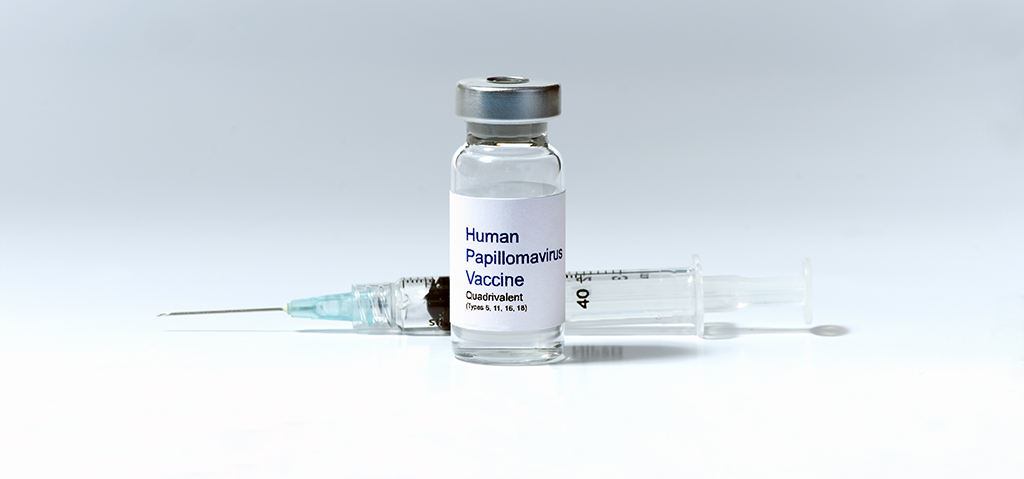
As a photographer, Wende Clark shoots many of her images in color.
But the decision to get her daughters vaccinated against the human papillomavirus? A black and white issue. With no negatives.
“It was a no-brainer,” the Comstock Park, Michigan, resident said. “It would be foolish not to.”
The Centers for Disease Control and Prevention recently released a study that confirmed the vaccine’s effectiveness against the sexually transmitted HPV virus, which can lead to cervical cancer.
HPV cases are down 64 percent since the CDC first recommended the vaccine for young women a decade ago.
Still, it’s the most common sexually transmitted infection in the nation, with about 79 million Americans currently infected. Once a person has contracted HPV, there is no cure.
Clark’s oldest daughter, a Michigan State University freshman, received the vaccine at age 16, after a recommendation from her physician assistant. Her youngest, a high school freshman, was immunized at 14 as she prepared for a mission trip and had a slew of other immunizations.
“There’s nothing to lose by doing it,” Clark said. “Even if they would choose one partner for life, which is what you hope, their life partner may have had other experiences. With this vaccination, my daughters are safe no matter what.”
Clark said there’s no downside, except perhaps the social stigma associated with the vaccine. Her health insurance even covered a portion of the cost.
“Some people might see it as something negative, but they’re looking at it from a skewed point of view,” she said. “I look at it as can this benefit my daughters? Yes. Can it hurt them? No.”
Clark said the vaccine doesn’t give young people a “green light” for promiscuity, but rather, the shot provides a 90 percent success rate of fending off cervical cancer.
“It doesn’t guarantee them to never have cervical cancer, but 90 percent, that’s almost a guarantee,” she said. “Why would you not protect your child?”
Suzanne West, MD, an obstetrician and gynecologist with Spectrum Health Medical Group, said she recommends the vaccine for everyone up to age 26, even if they’re already sexually active.
“Once you’ve contracted HPV, there is no cure,” Dr. West said. “The only effective way to protect yourself from contracting HPV is the HPV vaccine.”
The vaccine protects against nine of the high-risk strains of HPV, the virus that can cause cervical cancer, genital warts, vulvar cancer and penile cancer.
“You get optimal protection if the vaccine is given prior to initiating sexual activity,” she said. “Cervical cancer kills people. There isn’t a good treatment for cervical cancer once you have it.”
There are more than 100 different types of HPV, four of which cause about 70 percent of cervical cancers. HPV is typically diagnosed when a Pap smear reveals signs of the virus in the cells or after the emergence of genital warts.
Dr. West said the primary reason for boys receiving the vaccine is to prevent the spread of the virus to female sexual partners.
Despite the social stigma sometimes associated with the vaccine, Dr. West said it’s not awkward to bring it up.
“I just recommend it as a recommended vaccine and don’t tell the kids (if they are young) how the virus is transmitted,” she said. “Babies are vaccinated against Hep B, which is also a sexually transmitted infection, and most people don’t have a problem with that vaccine.”
Dr. West said no matter how much you trust your children to make wise choices, their partner could still be carrying the virus.
“I ask parents if they are willing to risk their daughter getting cancer from a partner who was not a virgin when they met,” Dr. West said. “When I was a resident I took care of a 32-year-old woman with three small kids who was dying from cervical cancer. Her only sexual partner had been her husband and he had two other partners before her.”
 /a>
/a>
 /a>
/a>
 /a>
/a>